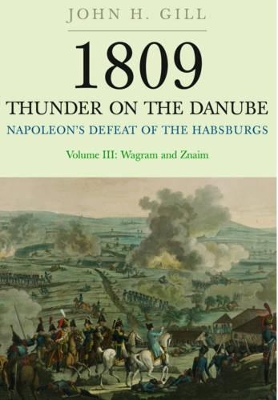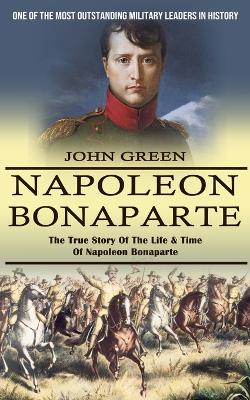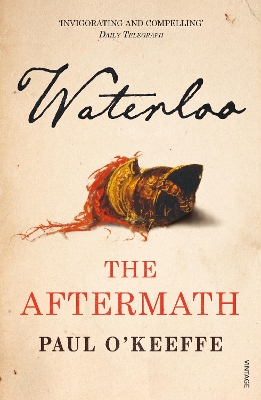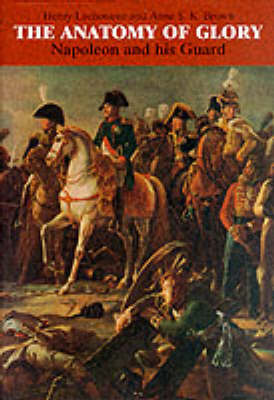Frederick the Great's Allies 1756-63 (Men-at-Arms, #460)
by Stuart Reid
The Seven Years' War in Germany was characterised by an increasing use of 'light' troops in conjunction with regular infantry and cavalry as part of an ongoing evolution in military tactics. This book draws attention to these tactical developments and also provides an analysis of the allied army that fought alongside Frederick the Great in Germany. Composed of troops from the electorate of Hanover and contingents from Hessen-Kassel, Brunswick and Prussia, this force was funded by Britain and led...
Historical Record of the Third, or the King's Own Regiment of Light Dragoons
by Richard Cannon
Carl Von Clausewitz's on War: A Biography (BOOKS THAT SHOOK THE WORLD)
by Sir Hew Strachan
On War by Carl von Clausewitz was first published in Germany after the Napoleonic Wars. One of the most significant treatises on military strategy ever written, it is still prescribed at various military academies today. Its description of 'absolute war' and its insistence on the centrality of battle to war have been blamed for the level of destruction involved in both the First and Second World Wars. Hew Strachan's accessible book challenges the popular misconceptions that surround On War. He d...
Uniforms of Russian army during the years 1825-1855 vol. 07 (Soldiers, Weapons & Uniforms 800, #7)
by Aleksandr Vasilevich Viskovatov
Hungary was the home of the elite Hussar. These skilled, daring and flamboyant light cavalrymen were first drawn for Hapsburg service from what is now northern Croatia, Serbia, Slovakia and Hungary in the late 17th century. It was not long before most nations in Europe adopted both Hussar formations, uniform and equipment, notably France, Britain and Prussia. This title covers a dynamic and glamorous period, during which the Hussars were increasingly regulated within the Hapsburg army, and devel...
The Portuguese Army of the Napoleonic Wars (Men-at-Arms)
by Otto von Pivka
In 1806, at the beginning of the Peninsular War, the Portuguese army was not at the peak of military efficiency. Nevertheless, under British tutelage it played an important part in the fight against Napoleon. Under Wellington's command, the Portuguese army distinguished itself in battles at Bussaco, Fuentes de Onoro and Albuera, and in 1813 helped the Allies win a decisive victory at Vittoria. Beginning with a chronology of Portugal's part in the Peninsular War, this book examines the uniforms,...
Voyages Dans La Basse Et La Haute Egypte Pendant Les Campagnes de Bonaparte. [2] (Ed.1817) (Histoire)
by Dominique Vivant Denon
Waterloo - After the Glory (Reason to Revolution)
by Michael Crumplin and Gareth Glover
The Battle of Waterloo was one of the most horrific actions fought during the Napoleonic Wars. There have been several studies of battlefield injuries and the field care that casualties received during the campaign of June 1815. However, what happened to the many thousands of injured men left behind as the armies marched away is rarely discussed. In June 1815, around 62,000 Allied and French wounded flooded into Brussels, Antwerp, and other towns and cities of the Kingdom of the Netherlands and...
Reproductions of the 40 chromolithographs depicting the Orders, Batons and Medals presented to the Duke by the grateful governments of all the major nations in Europe who were Britain's allies in the defeat of Napoleon, are accompanied in this book by short explanatory notes on the circumstances of each award, and a general introduction. Among the most prestigious honours bestowed on the Duke were Britains's Most Noble Order of the Garter, Imperial Russia's Military Order of St George, Spain's O...
August Schaumann was a natural born storyteller. He describes his Peninsula adventures so vividly that you get the feeling that you are there, riding next to him dodging French cavalry patrols and conquering the hearts and bodies of Spanish and Portuguese ladies. - Fons Libert, The Napoleonic Series This remarkable memoir captures the life and adventures of a junior officer as he endures the drama and agonies of the fierce struggle in Spain, Portugal, and southern France between 1808 and 1814....
Les Francais En Russie, Souvenirs de la Campagne de 1812 Et de Deux ANS de Captivite En Russie (Sciences Sociales)
by Just Jean Etienne Roy
Napoleon's Purgatory (Vernon Series in World History)
by Thomas M. Barden
Waterloo is probably the most famous battle in military history. Thousands of books have been written on the subject but mysteries remain and controversy abounds. By presenting more than 200 previously unpublished accounts by Allied officers who fought at the battle, this collection goes right back to the primary source material. In the letters the Allied officers recount where they were and what they saw. Gareth Glover has provided historical background information but lets the officers speak...
A History of the European Restorations
Europe's Restorations were characterised by their evolving dialectics. The chapters in this first volume address the key questions and controversies of Napoleonic history from a national and international perspective. From the re-ordering of the European world through the tools of intervention, occupation and diplomacy, to the creation of new constitutional monarchies across France, Scandinavia and Germany the volume outlines the processes that realigned national priorities and the accompanying...
Denis Pack was one of a phalanx of senior Anglo-Irish officers who served with great distinction in the British army in the French Revolutionary and Napoleonic wars, earning a reputation as one of the Duke of Wellington's most able brigade commanders. Despite his remarkable and varied military career, he hasn't received the individual attention he deserves, but this omission has now been remedied by Marcus de la Poer Beresford's full biography. Pack, who was born in 1774, served extensively in...
Napoleon's invasion of Egypt in 1798 was the first attack on a Middle Eastern country by a Western power in modern times. With 400 ships and 55,000 men, it was the largest, long-distance seaborne force the world has ever seen. But Napoleon's assault was intended to be much more than a colonial adventure for he took with him more than a hundred scientists, mathematicians, artists and writers - a 'Legion of Culture' for the purpose of bringing Western civilization to 'backward' Egypt. Ironically,...
1809 Thunder on the Danube: Napoleon's Defeat of the Hapsburgs, Volume III
by John H Gill
With this third volume John Gill brings to a close his magisterial study of the war between Napoleonic France and Habsburg Austria. The account begins with both armies recuperating on the banks of the Danube. As they rest, important action was taking place elsewhere: Eugene won a crucial victory over Johann on the anniversary of Marengo, Prince Poniatowski's Poles outflanked another Austrian archduke along the Vistula, and Marmont drove an Austrian force out of Dalmatia to join Napoleon at Vienn...
After midnight, 19 June 1815...On the battlefield more than 50,000 men and 7,000 horses lie dead and wounded; the wreckage of a once proud French Grande Armée struggles in abject disorder to the Belgian frontier pursued by murderous Prussian lancers; and Napoleon Bonaparte, exhausted and stunned at the scale of his defeat, rode through the darkness towards Paris, abdication and captivity.In the days, weeks and months that followed, news of the battle shaped the consciousness of an age. Drawing o...
With a New Introduction By Col. John R. Elting (USA, ret.) The glory of the Imperial Guard resounds above all others in the annals of war. Created, built and nurtured as a bodyguard for Napoleon, it grew from a brigade of fewer than two thousand men into a virtual army, and became 'a human fortress which no one but [Napoleon] could dominate and no enemy could penetrate'. And, on such battlefields as Austerlitz, Jena, Friedland, Wagram and Waterloo, it won the laurels of undying fame. Written by...
Wellington's Peninsula Regiments (1) (Men-at-Arms, #382)
by Mike Chappell
The famously hard-fighting Irish regiments of the British Army distinguished themselves not only in many of the main Peninsular battles, but also in several dramatic, but lesser known actions. This work contains new research into the uniforms and insignia - as well as the battle history - of the Irish regiments of Wellington's army that fought in the Peninsula from 1808 until 1814. It details the 88th Foot (Connaught Rangers), the 27th Foot (Enniskillens), the 4th Royal Irish Dragoon Guards and...
Recollections from the Ranks (From Reason to Revolution)
by Darrin Boland
From Napoleon's invasion of 1812 to the Wars of Liberation and beyond, seen from the common Russian soldier's perspective. This volume is composed of three accounts previously unavailable in English. Detailed annotations illuminate a seldom understood army and nation during one of the pivotal episodes in European history. Pamfil Nazarov was a peasant from Tver who was conscripted in 1812 but rather than head east to join the army in its campaign against Napoleon, he travelled to St. Petersburg...


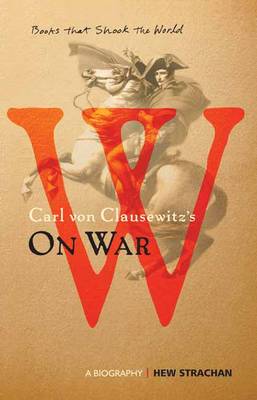
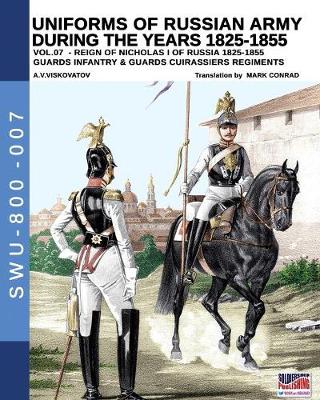

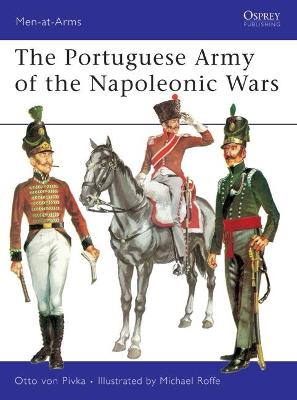
![Cover of Voyages Dans La Basse Et La Haute Egypte Pendant Les Campagnes de Bonaparte. [2] (Ed.1817)](https://images.bookhype.com/covers/03/28/91575c1d-6a72-42dc-9f7f-dbbab21b8230/9782012633070-3a09daac7891ff663bb8b4.jpg)











